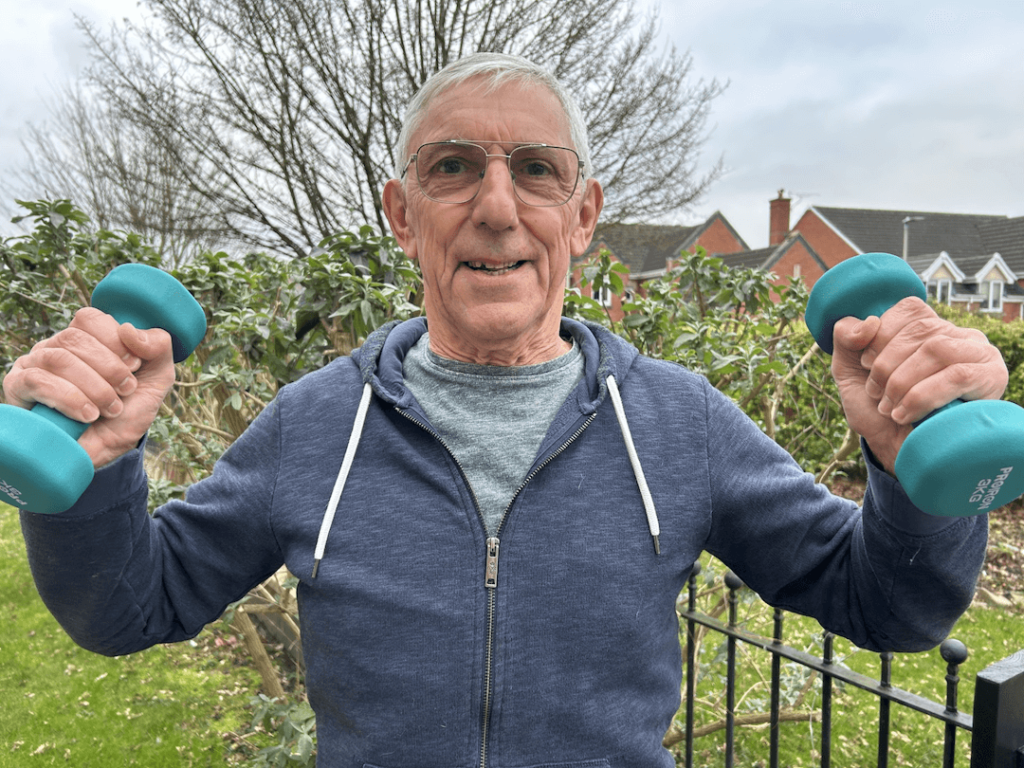Share my blog post:

"Anyone else planning to get fit and healthy in January?"
Our latest blog from our fitness associate John Cook that explores what it really means to be healthy, it might just change your plans.
Everyone you meet will tell you they want to be healthy, but what does be healthy really mean?
To some it might mean avoiding regular trips to their GP, to others it might mean managing an ailment through some form of medication and others will define it their way. However, the World Health Organisation takes a wide view of the topic and defines health as “a state of complete mental, physical and social well-being and not merely the absence of disease or infirmity”. This encourages us to broaden our thoughts into a landscape of social well-being, positive emotional and mental states as well as our medical and physical fitness.
Unfortunately, not all of these things will be under our control, the obvious examples being our age, gender and hereditary factors.
However, the challenges presented by moving to a new location where we are still to establish a friendship group, suffering from a recent bereavement or going through a difficult divorce are all examples that many of us will meet in our lives and this serves to reinforce the need to focus on what is under our control. We must also to recognise how interconnected many of these facets of health are.
So now let’s talk physical fitness in the narrower sense, and again we need to understand what we mean by the term.
Like the phrase “being healthy” it will have different meanings to different people, but I like to think of it as being a state of wellbeing that provides optimal performance. Again, this has many facets. You are probably expecting me to talk about stamina and muscular development but what about flexibility, body shape, balance, coordination, reaction time etc. This is where regular exercise can help as research has shown that regular physical activity improves brain health and cognitive function, reduces the risk of anxiety and depression, and improves sleep and overall quality of life.
But let me clear, I am not suggesting we all go out and try to run a marathon, climb Everest or aim for an Arnold Schwarzenegger body.
If we think of physical fitness as something that is important not only to professional athletes but as something that significantly affects our health, self-confidence, mental health and hence leadership effectiveness we must recognise that even minor changes to our lifestyle can have a huge positive impact. Completing recommended exercise quotas will add to our physical fitness but let’s not forget that back pain can be managed by exercise instead of medication, the mindfulness developed in a yoga class will add to the empathy a leader can show to the team, a group circuit class will give an opportunity to meet new people and short regular work breaks will reduce the stresses of life. Indeed, while writing this article my partner and I took our two energetic labradors for a twenty-minute walk and we both returned full of ideas.
Taking the argument further, engaging in physical activities that push your limits, such as weightlifting, endurance training, or yoga, can help you embrace discomfort and conquer adversity, which in turn fosters mental resilience.
Research has found that higher levels of mental fitness are tied to better psychological resilience (1). This helps us to understand the important role that physical fitness plays in mental health and leadership. It is essential for keeping the high energy levels that are crucial for effective leadership. It enhances personal self-confidence as well as physical and mental energy all of which are enablers for leaders needing to make sound decisions and confront challenges with unwavering determination. So, a strong body fosters the robust mind which is vital for effective leadership. The best leaders are also role models for their teams, encouraging them to bigger and better things, stretching their own limitations and focusing on the missions of the organisations.
In summary, regular exercise can improve cognitive function, reduce stress, and enhance mental resilience, all of which are essential for effective leadership and even minor lifestyle changes will be of benefit.
For more details contact – John Cook via WhatsApp 07500 014415
Reference: 1 University Medical Center New Orleans
Share my blog post:
